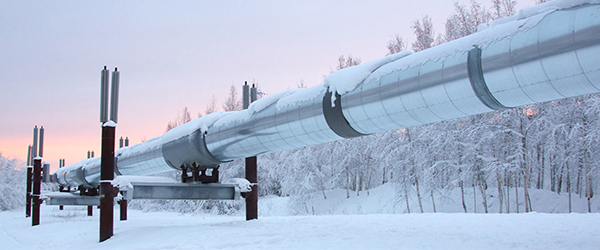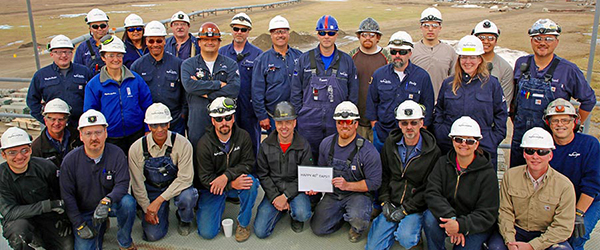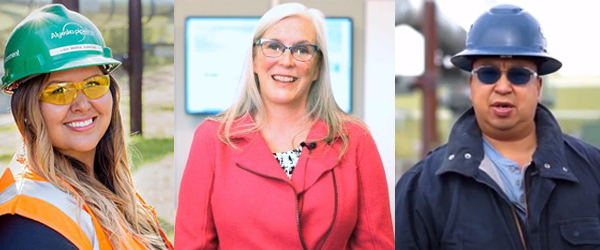2020: Hiring on at Alyeska during COVID
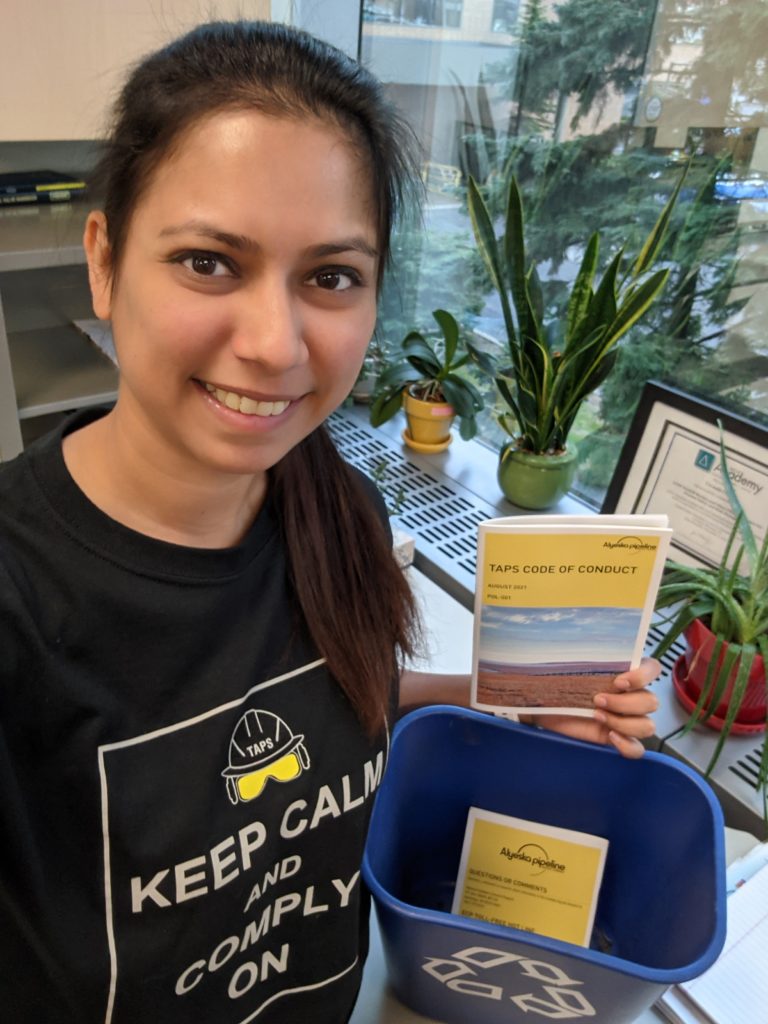
Those few employees hired by TAPS during COVID-19 had far-ranging experiences
Most Alyeska employees who show up for their first day have a similar experience: being walked around by a supervisor or an HR rep, inundated by cheerful introductions to enthusiastic new coworkers, set against a busy back-drop of hard-working, focused, friendly faces.
For Theresa Sheldon, her first day of work as a site engineer proved to be a very different experience.
“I had to go into CPW to sign paperwork and get my security badge,” Theresa recalled. “There was nobody there. It was completely quiet and empty – just myself, Julia, Tom Marchesani, and Dave Heimke. I think I recognized how strange that experience was. It felt like I was starting on a Saturday.”
It was actually a Monday, April 6, 2020, Theresa’s first day. It was also the hectic, heightened onset of the COVID-19 pandemic. CPW was a ghost town, empty for weeks with urban employees working from home. Field locations were reduced to only essential staff.
It was a singularly unusual time to start a new job but Theresa wasn’t alone. She is one of seven employees here today who were hired during 2020; five of them are engineers. By comparison, 57 employees remain who were hired in 2019, and there are currently more than 70 who joined in 2021.
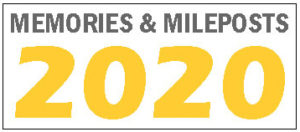 “Hiring that year really came to a halt,” said Fred Millen, HR Director. “It just was stopped for the most part. I was trying not to move people in if we were going to have to make changes. I was trying to manage attrition. There was so much instability. Oil went negative that year! So we were trying to go with what we had as much as we could.”
“Hiring that year really came to a halt,” said Fred Millen, HR Director. “It just was stopped for the most part. I was trying not to move people in if we were going to have to make changes. I was trying to manage attrition. There was so much instability. Oil went negative that year! So we were trying to go with what we had as much as we could.”
Urvashi Curran, a risk engineer, started at Alyeska in early March 2020, the timing such that she actually got to enjoy that whirlwind first-day experience. Then everything went sideways.
“I toured around the building, I got to meet the team, and got introduced to a lot of people, most of them were a blur, I don’t have a good memory,” Urvashi recalled. “Everybody was so friendly. Andrea (Metcalf, her supervisor) was leaving the next day on vacation and by the time she got back, we were working from home.”
Urvashi has another COVID-related memory from her first day: “When I was getting introduced to all these people, the biggest thing was — shake hands – oh wait – don’t shake hands! I’m not going to come and give you a hug but I am a hand shaker and it was just so weird.”
Urvashi said going remote so quickly after starting her job definitely made it harder to get to know her team and the other roles within the company. She found herself running virtual meetings with virtual strangers. In a couple of instances, she inadvertently omitted people who should have been invited because she didn’t know any better, being so new. “My team was, and is, incredibly supportive, but I ran into situations where I didn’t know what I didn’t know,” she said.
Even so, Urvashi said her team met often online, and she sensed some of that was her benefit so she could at least interact with her group.
While the telework created challenges for Urvashi, site engineer Theresa reported for work at Pump Station 4 and began her field rotation. She discovered some unexpected benefits from the station being stripped down to essential staff and the project load significantly reduced.
“It was a great chance for me to really get to know the supervisor and the technicians, and really understand what they want from their site engineer,” Theresa said. “There wasn’t distraction of a lot of personnel coming and going. It gave me a period to understand the core function of what the station does, who these people are, and how I could best support them.”
Not every employee who started at Alyeska in 2020 experienced notable disruptions. Matt Daggett, an automation engineer, joined the Operations Control Center in October . There were temperature checks and the facility landlords required mask wearing, but generally it wasn’t a major deal, Matt said.
He does have one amusing memory — another first-day-of-Alyeska story.
“For lunch, my supervisor went to Taco King and picked up a couple burritos and I sat in the bullpen – that’s the room for automation at CPW on the second floor,” Matt said. “I talked to a coworker, kind of distanced across the room. It was a great burrito, but I didn’t realize until attending a few lunches for recent hires that my experience wasn’t the norm.”
These days, Theresa is busy at Pump Station 4, where the workload gradually returned to normal levels.
“Summer 2021 was a little bit of a shock,” she recalled. “Who are these people? Where did all these people come from?”
Urvashi had a baby in 2020 and returned full-time to CPW after that, in December 2020, happy to finally have real face time with her team.
“It was actually hilarious, I’d go introduce myself and they’d be like, ‘Urvashi, I know you, we’ve been in meetings together!’” She laughed. “I kept reintroducing myself to people. They’d say, ‘Yeah, we’ve been in meetings together the last full year!’ Working together in person, made a huge difference. Everything got so much smoother, so much easier. I will say, I have a really good team and they really supported me. When I ran into roadblocks, it was so easy to talk to them. If I needed something, there they were.”
